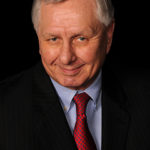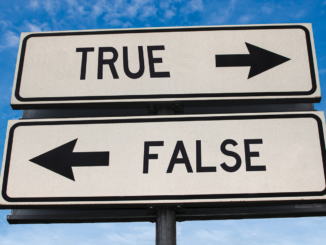“If you are depressed, you are living in the past. If you are anxious, you are living in the future. If you are at peace, you are living in the present.” – Lao Tzu.
From ancient wisdom to today’s frenzied business culture, mindful leadership is having a moment.
Practicing mindful leadership means being present every day and aware of your team’s needs. This brings teams together through relationship building and aids in employee retention.
So, what is mindful leadership?
Mindful leadership is about leading with awareness of the present moment, being fully engaged with your team and responsibilities, and making thoughtful, intentional decisions rather than reacting out of stress or habit. It emphasizes emotional intelligence, clarity, and purposeful action.
Those who practice mindful leadership develop improved decision-making from focus and reduced reactive emotions. Employees feel valued through higher levels of engagement. Through trust, empathy, and respectful communication, team dynamics improve. By enhancing work-life balance, mindful leaders reduce burnout.
Minding mindful leadership
The key skill mindful leaders develop is present-moment awareness. By bringing their full attention to the task at hand, reducing distractions, cultivating presence at meetings, focusing on decision-making and interpersonal communication, mindful leaders are always present in the moment.
And multi-tasking is kicked to the curb.
Mindful leaders learn to recognize emotional triggers and develop emotional intelligence through self-regulation. By responding calmly, with clarity and control, mindful leaders foster stability in high-pressure situations.
By showing genuine care for employee well-being and development, mindful leaders lead with empathy and compassion. Mindful leadership emphasizes intentional decision making based on values, vision, and long-term strategy, rather than knee-jerk reactions or short-term gains.
We can do better
As CEO of native-owned Raving, Deana Scott looks at mindful leadership with an industry-wide perspective.
“Why is it important? I think it is part of a strategy to be more aware of. Not just what you, as the leader, and the organization need, but understanding how your team shows up. Being respectful and concerned about how they’re showing up to the job, and being able to understand and cultivate a workforce that can customize to what each individual needs.
“We’ve always had an issue with a lack of employees and turnover rates. When we say 50 percent turnover rate, and we think that’s the industry average, and we’re okay with it, that’s an F.
“I don’t think I’m okay with that. I think we can do better. The fact that our workforce nowadays expects more from where they’re working doesn’t mean they’re lazy. It doesn’t mean they don’t want to work. It means they want to work with an organization that values their expertise and their time. If we can create that, we can create a team that wants to stick around — that’s excited to move up.
“Casinos offer an exciting career, although we don’t treat it as a career. We treat it as a job. And therefore, we have turnover, and we have a lack of satisfaction, and we just need to change our thinking in order to accommodate,” Scott said.
Being present
Mindful leaders keep their full focus on being present in the task at hand. Scott thinks our national culture around tech is a problem that being present can overcome.
“We are a very distracted society right now, and so how do you, as a leader, ensure that you’re present for your team when you are at work? It’s about really listening for understanding, and these are simple things. This isn’t anything new, but when you really think about putting it into play, it is a lot harder to walk the talk,” Scott said.
Emotional intelligence and empathy
Emotional intelligence plays a part in mindful leadership. And Scott thinks it’s about how we relate to one another.
“Emotional intelligence is about understanding what you bring to the table, your triggers, and how you react. It’s also understanding and being able to empathize and relate to others, and that is a learned behavior. Not everybody is good at that.
“When people say ‘check your emotions, check your problems at the door,’ that is not always possible. You can manage them while you’re at work, but we still can have empathy and understand what’s going on with that person and meet them where they’re at. Being able to ask the right questions and seek understanding as the mindful leader can help people feel included and part of the team,” Scott said.
Being non-judgmental
“You need to create an environment of trust, and people need to see you walk the talk, and that doesn’t happen overnight. These types of management practices take time. The quality of decisions and the progress you can make is pretty remarkable,” Scott shared.
A 360 View
As owner of Raving, Deana Scott has a unique 360 view of the industry. I asked her if she had seen the results of gaming companies that applied programs like mindful leadership.
“There are some properties that are trying really hard to change these initiatives. I’m not sure that there’s an understanding that this work takes more than a couple of classes. This is a strategic initiative and commitment by an organization to look at the organization overall and decide how it can change the mindset of leadership and build leaders where everybody has that same culture. It’s awareness of leadership and culture so that we’re building this solid, strong foundation of people that have the same communication style and desire to move the organization forward,” Scott related.
“One of the things that stood out to me during COVID was that there were two types of organizations. Organizations that closed, hunkered down, and then came back, other organizations that kept on their management and core teams, kept paying their teams, and did a lot of strategic planning.
“They remodeled; they did a lot of initiatives that at the time, I’m sure, were scary. But when those organizations reopened, they were ready to move. They had shown their team that they really did have their backs. They did the work that’s hard to do when you’re open 24/7, and I definitely see a difference in the organizations that took that time to build the business, as opposed to those who shut down,” Scott recalled.
Raving leadership difference
I asked Scott if Raving offers a mindful leadership program.
“Raving’s leadership programs include mindful leadership. It’s a strength-based leadership program that focuses on mindfulness and evidence-based learning. And we include that in every leadership program we do. I know we’re the only ones that do it.
“As an industry, we spend a lot of time telling people what they do wrong. So, we look at it a little bit differently. What are those things that you really bring to the table, that if you focused on them, and really made those core strengths, you could grow your soft skills as a leader,” Scott stated.
The next level
Scott believes that applying the tenets of mindful leadership can take gaming organizations to the next level.
“This is hard work, and there are leaders out there trying to do that. As long as they get the commitment from their tribal council or board of directors and they’re given time and the resources, I think that long term, those organizations are going to be unstoppable,” Scott stated.
One mind, one heart, one stroke
Speaking to Rita Jefferson on a Zoom call, behind her, I could see framed artwork depicting two Native American canoes propelled during a race by a team of rowers in each canoe.
“I grew up pulling canoe, and we’re taught that in order to win the race, we all have to be of one mind, one heart, and one stroke. I take that into every role, that we’re only as strong as our weakest pullers. Our job is to help build up each canoe puller. We carry that over into an organization. You build up your team so that you’re all strong team members and you’re working towards your vision or your goal,” Jefferson said.
Culture of Continuous Improvement
Rita Jefferson, a member of the Lummi Nation, has been recognized for her leadership in tribal gaming and hospitality management. She joined Raving as a partner in November 2024, bringing decades of experience in tribal enterprise leadership.
In her prior role as Chief Operating Officer for seven years and Interim CEO at the Silver Reef Resort, Rita has successfully overseen operations, leading her team to achieve record-breaking revenues and exceptional customer satisfaction.
Rita also served as council member and treasurer for the Lummi Nation, where she developed and implemented policies that promoted financial resiliency, economic growth, workforce development, and cultural preservation.
Preferences and present moment awareness
“I was CEO for seven years, and then for seven months I served as interim CEO, but I had a non-gaming background coming in. I worked on the policy side before, but I did economic development. I built a CDFI [community development financial institution], so I had different types of operational experience and gaming when I came in.
“My peers liked it because I had different ways of thinking and looking at things. I’m a financial person, but I’m also a people person. I care about others. It’s important to have self-awareness and to understand your own preferences, because I’ve come into situations where I couldn’t understand how somebody would come to their thought processes, and that’s because of my own preferences and the way I think.
“When people come to work, they also have their personal lives where they may be bringing in some sort of circumstances, and I don’t want to call it baggage, but burdens that they have at home, so they can’t be fully present at work. When they come into work, if you have a relationship with them, and you’re present throughout the floor, you have an actual conversation, not just ‘Hi, goodbye.’
“It’s not only their preferences but their behaviors that you pick up on when something is different in the day. Then something either must be going on within that department or the workspace, or there must be something going on at home. As leaders, we need to be in tune with our team members in order to help bring out the best in them, because as leaders in mindful leadership, it’s about the barriers you’re breaking down so that your team can be at their best,” Jefferson said.
Bundling sticks and compassionate leadership
“Whether it’s leading the team, it’s helping to steer the team, guiding the team, I’m able to do that because I’ve found that if I try to do something by myself because I want credit for it, there’s going to be all kinds of resistance.
“Whereas if I build, as we say, ‘One stick is easy to break, but if you bundle a bunch of sticks together, it’s much harder to break.’ If you want an effort to be successful, you build a team that can help move it forward, but it also gives you different perspectives to come up with a better solution that’s best for the organization or the community,” Jefferson said.
On working with Generation Z and non-judgmental awareness
“This generation is more about the experience of life. My generation grew up being workhorses. We have a lot to learn from this new generation about how we create that balance between our families, ourselves, work, and what goals we have for the work and lifestyle that we choose,” Jefferson remarked.
Applying mindful leadership to the gaming industry
“I would say, be present with your people, and it’s not just walking by and simple things, such as having eye contact with them, asking them how their day is going. Listen to what they have to share with you, and role model the behavior that you want. I think I have been able to cultivate an environment of trust and respect, because people have seen me working hard, not just behind closed doors, but out on the floor, interacting with people,” Jefferson said.
Aligned values
Camille Mercier, CEO of Spirit Mountain Casino in Grand Ronde, Oregon, has been the CEO for just over two years. She was the assistant CEO previously. She was an HR director at three different casinos, Spirit Mountain included. “I was at Spirit Mountain for about 15 years. I left and went to Ameristar, which was a corporate casino in Iowa, and then I went to another tribal casino in Washington. I was gone for about 10 years before I returned to Spirit Mountain,” Mercier said.
“I certainly do have a perspective on mindful leadership, and I often wonder if mindful leadership is being both a CEO and a tribal member of the tribe that owns the casino that I run. I tend to think that my values are aligned with what the tribe wants, and what our leaders want in the tribe, and hopefully with what our employees want, which means to me treating people with respect.
“At one point in time, I was a frontline employee, and I was a young mother, and I was struggling. I do know that everybody, even in the worst circumstances, wants to be treated with dignity and respect. And I try to let that guide me in operations and guide me in our initiatives,” Mercier remarked.
Everything I know, I learned in kindergarten
“I really come from a place where people want to do good, and people really want to contribute to a positive environment. And if you remove those barriers and make positive opportunities or positive communication, even if it’s what people don’t want to hear, it’s respectful,” Mercier said.
A much better product
I asked Mercier if she thinks you could take the principles of mindful leadership and move them into the organization in a systematic way. Is that something you think can be done?
“We have tribal members who go to tribal council meetings and want employees to be able to give suggestions and tell their departments how things should be run. And they want more than just a suggestion program, and so we’ve created some employee committees that are open to mindfulness.
“We had some great managers and frontline employees speak up and say, ‘Why don’t we do X, Y, and Z?’ Using our employee evaluation process as an example, we tasked them with a new performance evaluation process. I actually got quotes from three different organizations who would come in and do a revamp of our performance evaluation process. I don’t think any one of those bids were under $80,000. I fully believe giving this challenge to an employee group we got a much better product. We didn’t spend the money, and we listened to our employees.
“I look back to empowering people to be part of solving the problem, versus just their own opinion or perspective, and I guess getting people into training is really about empowerment.
“It’s really about trusting the process and trusting employees to understand the tools, have the same jargon that other departments are using, and collaboratively work together to solve a problem. I’m hoping that we get there in a more effective way that’s not only mindful but intentional and respectful and empowering people who may not get that opportunity to do so otherwise. And I think we can learn a lot from our frontline employees,” Mercier said.
The Generation Z effect
I asked if the new Generation Z workforce has forced Mindful leadership on gaming operations.
“To that new generation. I think things such as technology helped. We’ve been able to automate our HRIS information and our payroll. We’ve automated schedules. We’ve automated now and no longer do you have to walk into the building to see your schedule.
“I don’t know that we’ve keyed into it completely. It feels like it’s bigger, better, faster. I think we have a lot of great ideas, especially from our frontline leadership, like giving opportunities to younger folks to go to supervisory classes if they’re interested,” Mercier remarked.
Modeling
I asked Mercier how she sees Native American gaming companies applying the mindful leadership principle of being present and empathy.
“The biggest impact is modeling and oftentimes that means coming in, talking to the frontline employees, and of course, just being visible. If I’m not listening, or our executive team is not listening to our managers or being dismissive, guess what our frontline employees are getting? In the last two to three years, we’ve worked really hard on soft skills.
“And sometimes that means not treating everybody the same. That means taking the time that somebody might need. Sometimes that means more training. Sometimes that means just having patience,” Mercier said.
Many methods
From Deana Scott’s leadership programs that build on strengths, to Rita Jefferson’s understanding of perspectives, and Camille Mercier’s empowering employees through respect, there are many methods to apply mindful leadership in tribal gaming.
The real issue is how mindful leadership tenets can be adopted through a thoughtful approach for what works best for moving your goals forward.
To view more of the How It’s Done Series, search here.





